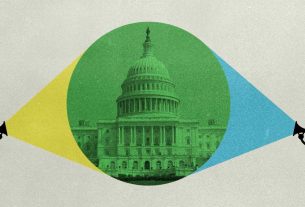Powerful institutions are using automated decision-making against us. Landlords use it to decide who gets a home. Insurance companies use it to decide who gets health care. ICE uses it to decide who must submit to location tracking by electronic monitoring. Bosses use it to decide who gets fired, and to predict who is organizing a union or planning to quit. Bosses even use AI to assess the body language and voice tone of job candidates. And these systems often discriminate based on gender, race, and other protected statuses.
Fortunately, workers, patients, and renters are resisting.
In 2024, Colorado enacted a limited but crucial step forward against automated abuse: the AI Act (S.B. 24-205). We commend the labor, digital rights, and other advocates who have worked to enact and protect it. Colorado recently delayed the Act’s effective date to June 30, 2026.
EFF looks forward to enforcement of the Colorado AI Act, opposes weakening or further delaying it, and supports strengthening it.
What the Colorado AI Act Does
The Colorado AI Act is a good step in the right direction. It regulates “high risk AI systems,” meaning machine-based technologies that are a “substantial factor” in deciding whether a person will have access to education, employment, loans, government services, healthcare, housing, insurance, or legal services. An AI-system is a “substantial factor” in those decisions if it assisted in the decision and could alter its outcome. The Act’s protections include transparency, due process, and impact assessments.
The Act is a solid foundation. Still, EFF urges Colorado to strengthen it
Transparency. The Act requires “developers” (who create high-risk AI systems) and “deployers” (who use them) to provide information to the general public and affected individuals about these systems, including their purposes, the types and sources of inputs, and efforts to mitigate known harms. Developers and deployers also must notify people if they are being subjected to these systems. Transparency protections like these can be a baseline in a comprehensive regulatory program that facilitates enforcement of other protections.
Due process. The Act empowers people subjected to high-risk AI systems to exercise some self-help to seek a fair decision about them. A deployer must notify them of the reasons for the decision, the degree the system contributed to the decision, and the types and sources of inputs. The deployer also must provide them an opportunity to correct any incorrect inputs. And the deployer must provide them an opportunity to appeal, including with human review.
Impact assessments. The Act requires a developer, before providing a high-risk AI system to a deployer, to disclose known or reasonably foreseeable discriminatory harms by the system, and the intended use of the AI. In turn, the Act requires a deployer to complete an annual impact assessment for each of its high-risk AI systems, including a review of whether they cause algorithmic discrimination. A deployer also must implement a risk management program that is proportionate to the nature and scope of the AI, the sensitivity of the data it processes, and more. Deployers must regularly review their risk management programs to identify and mitigate any known or reasonably foreseeable risks of algorithmic discrimination. Impact assessment regulations like these can helpfully place a proactive duty on developers and deployers to find and solve problems, as opposed to doing nothing until an individual subjected to a high-risk system comes forward to exercise their rights.
How the Colorado AI Act Should Be Strengthened
The Act is a solid foundation. Still, EFF urges Colorado to strengthen it, especially in its enforcement mechanisms.
Private right of action. The Colorado AI Act grants exclusive enforcement to the state attorney general. But no regulatory agency will ever have enough resources to investigate and enforce all violations of a law, and many government agencies get “captured” by the industries they are supposed to regulate. So Colorado should amend its Act to empower ordinary people to sue the companies that violate their legal protections from high-risk AI systems. This is often called a “private right of action,” and it is the best way to ensure robust enforcement. For example, the people of Illinois and Texas on paper have similar rights to biometric privacy, but in practice the people of Illinois have far more enjoyment of this right because they can sue violators.
Civil rights enforcement. One of the biggest problems with high-risk AI systems is that they recurringly have an unfair disparate impact against vulnerable groups, and so one of the biggest solutions will be vigorous enforcement of civil rights laws. Unfortunately, the Colorado AI Act contains a confusing “rebuttable presumption” – that is, an evidentiary thumb on the scale – that may impede such enforcement. Specifically, if a deployer or developer complies with the Act, then they get a rebuttable presumption that they complied with the Act’s requirement of “reasonable care” to protect people from algorithmic discrimination. In practice, this may make it harder for a person subjected to a high-risk AI system to prove their discrimination claim. Other civil rights laws generally do not have this kind of provision. Colorado should amend its Act to remove it.
Next Steps
Colorado is off to an important start. Now it should strengthen its AI Act, and should not weaken or further delay it. Other states must enact their own laws. All manner of automated decision-making systems are unfairly depriving people of jobs, health care, and more.
EFF has long been fighting against such practices. We believe technology should improve everyone’s lives, not subject them to abuse and discrimination. We hope you will join us.



